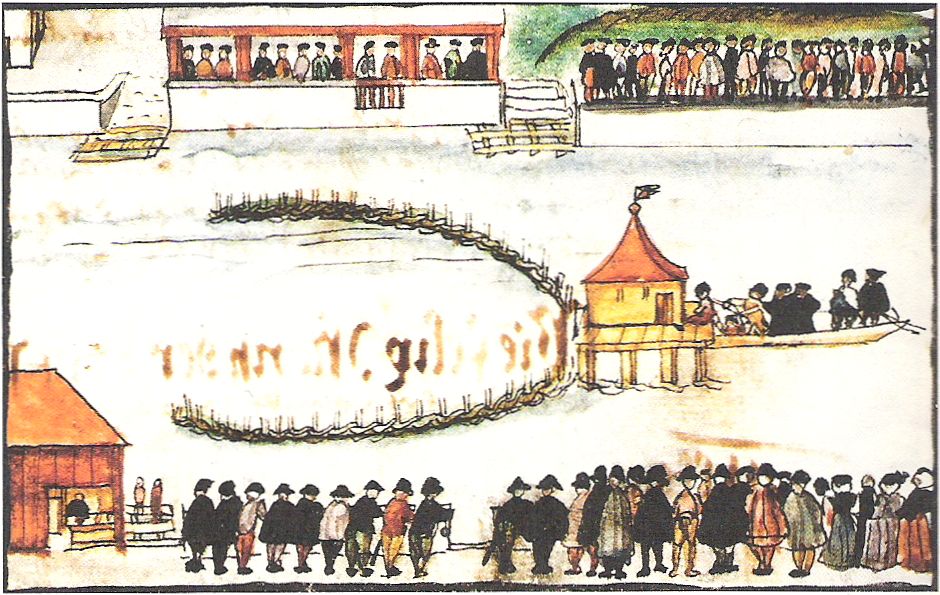 On January 5 Felix Manz was drowned. Which might seem like bad luck and maybe the occasion for a safety campaign. But I’m afraid it’s considerably more unpleasant than that. You see, he was drowned on purpose, in Zurich, on January 5 of 1527, as what I can only assume is a grimly ironic punishment for advocating and practising adult baptism.
On January 5 Felix Manz was drowned. Which might seem like bad luck and maybe the occasion for a safety campaign. But I’m afraid it’s considerably more unpleasant than that. You see, he was drowned on purpose, in Zurich, on January 5 of 1527, as what I can only assume is a grimly ironic punishment for advocating and practising adult baptism.
Manz was an Anabaptist, part of an extreme wing of the Protestant Reformation, theologically speaking. Among other things they argued that infant baptism was just wetting a baby and that the ceremony could only have spiritual effect if performed on someone who understood it and did it willingly.
I grant that they could be annoying in a mild way, because they also tended to refuse to take oaths, defend the state or go along with civil authorities. They based this conduct on a very literal reading of the Sermon on the Mount and what strikes me as a wilful disregard of the injunction to render unto Caesar that which is rightly Caesar’s in this troubled and sinful world.
However that may be, Manz was not drowned for refusing to take an oath. He was drowned by the state because on March 7, 1526 the very Protestant Zurich council, whose members included the leading theologian Huldrych Zwingli whose ideas had a major influence on John Calvin, had declared adult rebaptism punishable by drowning. Which ought at least to dispel any notion that Protestants were better than Catholics on the topic of freedom of conscience and on separating Church and state. In fact Zwingli himself was killed in battle trying to force Protestantism on Catholic parts of Switzerland.
I’m not very sympathetic to Anabaptist doctrine or behavior in a lot of areas. I And I can see legitimate grounds for jailing people who will not pay a parking ticket because Jesus told them not to. But it’s the behaviour, not the belief, that matters, and it’s the behaviour of refusing to do something necessary to public order.
I don’t have freedom of conscience to run a red light or refuse to testify truthfully in court about seeing someone else do it. But holding a man under water until he dies for wanting to be held under water until God is happy is surely so grotesque that it’s hard to believe anyone would do it, let alone do it proudly.

